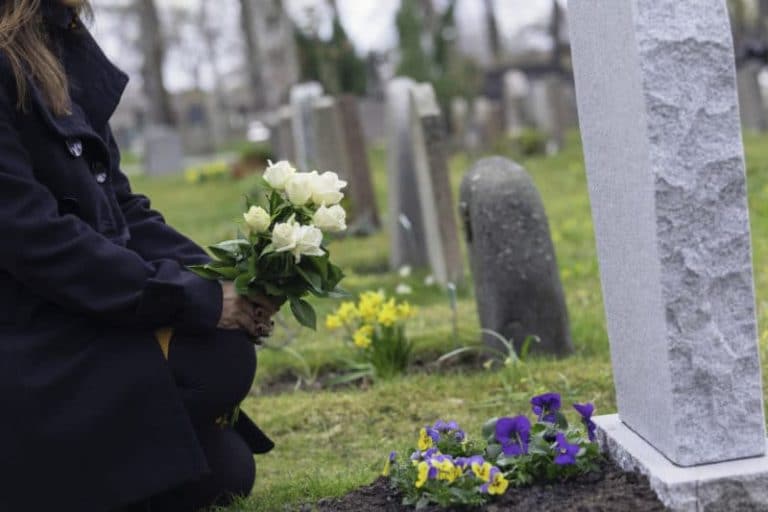What Qualifies As A Wrongful Death Lawsuit

The unexpected death of a loved one at the hands of a negligent party can be an overwhelming and confusing experience. It’s important to know that if you’ve lost a loved one due to the negligence of another, you are not alone, and there are resources available for you to tap into.
For many, seeking out legal representation in order to hold responsible parties accountable can be a necessary step forward in the path to healing. At the Bachus & Schanker law firm, our legal team is committed to providing exceptional legal representation so that you and your loved ones can get the justice you deserve.
Experienced and dedicated attorney Kyle Bachus has helped provide invaluable legal guidance to families of all backgrounds who have experienced the unimaginable pain of losing a loved one due to another’s negligence. In his book “Unthinkable” Bachus offers critical guidance for those dealing with a wrongful death or the catastrophic injury of a loved one.
Get in touch with our legal team today, schedule a free consultation, and speak with one of our legal experts about your rights and options.
What is a wrongful death lawsuit?
Wrongful death lawsuits are civil lawsuits filed by the spouse, child, parent, heir, or designated beneficiary of an individual who has been killed because of another individual or entity’s negligence.
This negligence can be intentional, accidental, or both. Civil wrongful death lawsuits cannot hold a defendant criminally liable, however, they allow a victim to seek compensation for the loss of their loved ones.
In some cases, wrongful death lawsuits can lead to a criminal conviction that can also hold the negligent party criminally liable for their actions. Criminal liability can bring with it a fine, jail time, and other legal consequences.
Elements of a wrongful death lawsuit
There are four elements that must exist in order for a wrongful death lawsuit to be brought forward. These elements include the following:
- Negligence – This is the failure to act in a manner that offers ordinary or reasonable care. Negligence can be intentional or reckless.
- Death of another person – A death must have occurred in order for a wrongful death lawsuit to be brought forward.
- Causation – The death that has occurred must be the result of the negligent action of the defendant.
- Damages – As a result of the death, a victim’s family must have suffered substantial loss. This loss is calculated as damages.
When determining what qualifies as wrongful death, you will need to consider where the wrongful death occurred. There are many types of situations where a wrongful death might happen with common situations including but are not limited to the following:
- Intentional killing
- Medical malpractice
- Auto accidents
- Defective products
- Workplace accidents
Who can file a wrongful death lawsuit?
Laws differ from state to state on who can bring forward a wrongful death claim. Colorado law has strict guidelines on who can file a wrongful death lawsuit. Colorado places priority on who can bring forward a claim based on a surviving loved one’s dependants or surviving family members.
In the first year following an individual’s death, only a spouse can bring forward a lawsuit. If there is no spouse, other heirs (such as children) or parents can bring forward a claim.
In the second year following an individual’s death, parents, and other heirs can bring forward a claim or they can join the original lawsuit filed by the spouse.
If a decedent has no spouse or children, parents can file on behalf of their deceased child.
Finally, if a decedent has a named beneficiary, this beneficiary can file a wrongful death lawsuit as well.
How hard is it to prove wrongful death?
After considering what qualifies as a wrongful death lawsuit, it’s important to consider the difficulty of proving your case. It can be difficult to prove a wrongful death lawsuit, and typically the less evidence you have the more of an uphill battle it will be to prove your claim.
The most difficult aspect of proving a wrongful death lawsuit is showing that a defendant was negligent and it was their negligence that caused your loved one’s death. Fortunately, unlike a criminal case, the burden of proof is much lower in a wrongful death lawsuit.
In proving a wrongful death lawsuit, there are a couple of elements that need to be considered:
- Proving duty – An experienced wrongful death lawyer will need to prove that there was a level of duty between a defendant and your loved one. An attorney will need to show that a defendant had a duty to care for or take reasonable action regarding the safety of your loved one. In certain circumstances, this duty of care is easier to prove than others. For example, an employer might have a greater duty of care than a motorist who caused your loved one’s death during an accident.
- Breach of duty – After duty has been established, a wrongful death attorney will need to show that the defendant breached their duty of care. Whether it be not following guidelines, acting in a reckless manner, or acting in an intentional manner, the breach of duty shows that a defendant did not do what they were supposed to do in order to keep an individual safe.
- Causation – This is the legal concept that a defendant’s breach of duty is what caused the injuries or the death of the victim in the first place. This is another element that can be difficult to prove.
- Damages – A plaintiff must also show that the loss of their loved one has caused them significant losses. Damages typically are not difficult to prove and include everything from financial losses to emotional pain and suffering.
The single most important aspect of proving that the defendant is responsible for your loved one’s death is through detailed and comprehensive evidence collection. The collection of evidence can take on many forms and can include the following:
- Collection of video surveillance
- Documentation of procedures and policies and a defendant’s failure to adhere to these procedures and policies
- Witness statements
- Official reports
Wrongful death settlements
Wrongful death settlements can vary from case to case. Typically, however, the average wrongful death settlement ranges anywhere from $500,000 to $1 million dollars. In unique cases, a wrongful death settlement can trickle upwards of tens of millions of dollars and more.
How are settlement amounts determined?
Settlement amounts are determined by the level of harm caused to both the decedent and their surviving family members. Settlement awards are based on damages that a plaintiff seeks. Plaintiffs can seek compensatory damages in the form of economic and non-economic damages as well as punitive damages.
Economic damages are designed to compensate surviving family members for the calculable loss of their loved one. These damages seek to recoup losses including but not limited to the following:
- Medical expenses
- Burial and funeral expenses
- Loss of income, lost wages
- Other calculable losses
Non-economic damages are designed to compensate the victim’s family for non-tangible losses. These losses can be difficult to calculate and include but are not limited to the following:
- Pain and suffering
- Emotional and mental anguish
- Loss of consortium
How are settlements paid out?
When a settlement is reached in a wrongful death lawsuit, settlement awards will be paid out either in a one-time lump sum payment or through a structured settlement. With a lump sum payout, a plaintiff will receive awarded damages through a single one-time payment.
With a structured settlement, plaintiffs will receive regular payments, typically once every month, for a determined period of time. These monthly payments will continue until a plaintiff has been fully awarded the settlement funds they are entitled to.
Is a wrongful death case considered a civil case or a criminal case?
A wrongful death lawsuit is a civil case meaning a plaintiff can hold the negligent party accountable by forcing them to pay for the wrongful death they have caused. Wrongful death civil lawsuits cannot themselves bring about criminal charges. However, a wrongful death lawsuit can prompt a criminal investigation to ensue.
A criminal case can only be brought forward by a prosecutor, not a civilian. Unlike a civil case, a criminal case can result in legal consequences including fines and jail or prison time.
Get legal help from an expert wrongful death lawyer

The experts at the Bachus & Schanker law firm are committed to representing victims who’ve lost a loved one due to another person’s or entity’s negligence. Our legal firm understands the complexities associated with the wrongful death of a loved one.
Our team is committed to helping protect victims and their families. With resources including our Victim’s Advocates Team, we help connect all our clients with professionals that can further guide them with the resources they need. Our Victim’s Advocates Team is a one-of-a-kind team made up of highly specialized professionals who will aid in evidence collection, education, and assistance according to your specific case needs.
Contact our wrongful death attorneys for assistance today and get the representation you and your family deserve.
Sources:
Justia. Colorado Wrongful Death Law. (2023).
Justia. Economic damages. (2023).
Justia. Non-economic damages. (2023).




